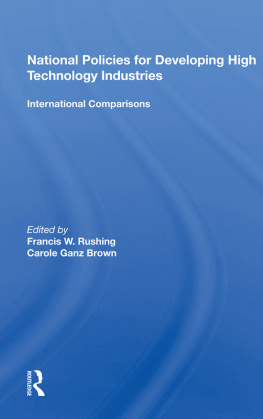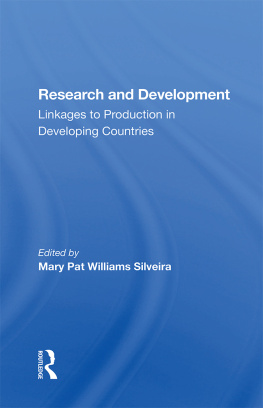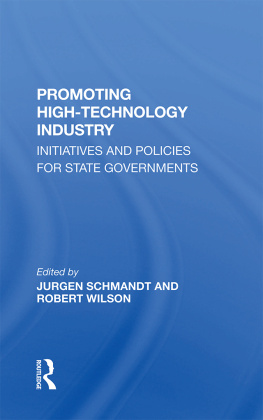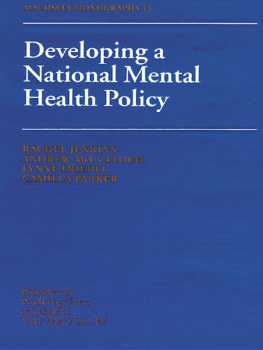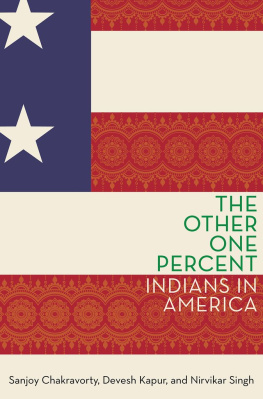National Policies for Developing High Technology Industries
About the Book and Editors
Over the past three decades there has been a growing Interest In policies designed to stimulate growth and development through the development of high technology industries. Often these industrial policies encourage development of the high technology informatics industry. Technological advances and the expansion of productive capabilities are viewed as a driving force in national economic strategies for increasingly larger stakes in a highly competitive and interconnected global market.
The authors of this volume look at the Informatics industry in eight countries, Brazil, France, India, Japan, Korea, Mexico, Taiwan, and the D.S., as models for examining the role of governments in promoting advanced technology. The extent to which national policies succeed or fail in the implementation of general agendas for new industrial programs is seen in the widely varying approaches found in these countries. The authors consider the appropriate supporting infrastructure and long-range policy analysis and evaluation necessary for fostering competitive industry.
Francis W. Rushing is Chairman of the Department of Economics and Director of the International Center for Entrepreneurship, Georgia State University,and Senior Economic Consultant, Science Policy Program, International Policy Center, SRI International. Carole Ganz Brown is Senior Program Manager for Studies and Assessments at the Division of International Programs, National Science Foundation.
National Policies for Developing High Technology Industries
International Comparisons
edited by Francis W. Rushing
and Carole Ganz Brown
First published 1986 by Westview Press
Published 2018 by Routledge
52 Vanderbilt Avenue, New York, NY 10017
2 Park Square, Milton Park, Abingdon, Oxon OX14 4RN
Routledge is an imprint of the Taylor & Francis Group, an informa business
Copyright 1986 by the U.S. Chamber of Commerce
All rights reserved. No part of this book may be reprinted or reproduced or utilised in any form or by any electronic, mechanical, or other means, now known or hereafter invented, including photocopying and recording, or in any information storage or retrieval system, without permission in writing from the publishers.
Notice:
Product or corporate names may be trademarks or registered trademarks, and are used only for identification and explanation without intent to infringe.
Library of Congress Catalog Card Number: 86-50530
ISBN 13: 978-0-367-01140-6(hbk)
The project from which this book has emerged was funded by grants from the International Division of the National Science Foundation and the U. S. Section, Brazil-U.S. Business Council. The Editors extend a special thanks to these organizations. However, the cases and the findings of the book are solely the responsibility of the authors and should not be attributed to the project sponsors.
The editors would like to express their appreciation to Keith Miceli and Sandi Beretta of the U. S. Section, Brazil-U.S. Business Council and to Catherine P. Ailes of SRI International who have provided helpful suggestions and support at all stages of this project. Betty R. Hutchins, Marilyn H. King, Marian M. Mealing and Mark W. Rider of Georgia State University have diligently and professionally prepared this manuscript for publication. We are indebted to each of them.
Kellie Masterson of Westview Press has assisted us in innumerable ways to ensure timely publication of this book. Finally, we would like to express our appreciation to the authors, whose scholarship and cooperation have made each stage of the project not only productive but also enjoyable.
Francis W. Rushing
Carole Ganz Brown
International trade has grown dramatically since World War II as the world economy has become more integrated and interdependent. In this period, the United States has led the call for a reduction in trade barriers erected during the 1930's. While the General Agreement on Tariffs and Trade has provided a framework for negotiating the reduction of barriers, it has not accomplished their elimination. Nontariff barriers have emerged over the last two decades as the not-so-visible but ever-present obstructions to flows of goods and investments. These barriers, like tariffs and quotas, reflect attempts by governments to achieve their goals by tilting the outcomes of economic interaction toward their national interests.
The U.S. Section of the Brazil-U.S. Business Council cosponsored with the National Science Foundation the investigation of national policies for the development of the informatics industry in eight countries. Each case is different, and yet patterns emerge which recommend or discourage some of the policy options. The objectives of this project were to enhance the understanding of the role of governments in economic development and international trade, to identify costs and benefits to the domestic and world economy of national policies, and to provide a basis for developing trade policies for the United States. The publishing of National Policies for Developing High Technology Industries : International Comparisons is the culmination of the project and shares with policy makers, academics and business persons the findings of this distinguished group of scholars.
Paul F. Oreffice
Chairman, U.S. Section
Brazil-O.S. Business Council
and
President and Chief Executive
Officer
The Dow Chemical Company
High-technology has become so Important worldwide that all nations seek to understand its benefits and to formulate policies to achieve them. All nations also fall short of possessing the policies required either to provide the most favorable environment for private sector initiatives to advance technology or for a thoroughly effective government role.
This volume makes an important contribution to this worldwide need to identify the goals, priorities, and strategies of nations when technological advance is at stake. For the United States, the results of this project come at a particularly opportune time as the benefits of technical advance--international competitiveness, productivity, national security--are high on the country's agenda. Comparisons between U.S. technology policies and those of other nations are helpful for several reasons.
In the United States, a great deal of what happens on the technology front is dependent on U.S. government decisions and practices as well as private sector activities. Government support for research, defense procurement, curbing of monopolies, patents and numerous other conditions set "industrial policy" in the United States. In particular, foreign experiences in government-industry teaming are playing a significant role in changing U.S. antitrust legislation which generally banned joint efforts among American companies.
Comparisons with other countries are also helping to identify critical deficiencies in U.S. national policy. On the educational front, statistics show that for every thousand college graduates America turns out, only seven are engineers. For Japan, the figure is forty. This kind of comparison is now a major force in current debate about the need to strengthen the U.S. research system.
A third consideration Is that in the future a majority of technology advances will happen outside the United States. This country can clearly learn from others about how government policy can appropriately balance national innovation performance and acquisition of technology abroad.


